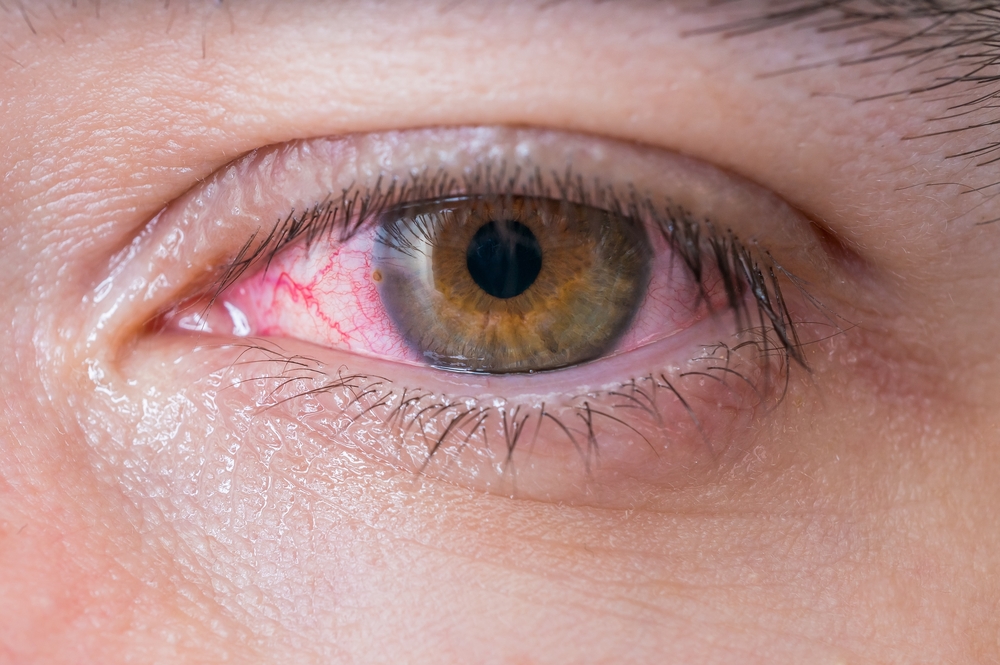
Pink eye, medically known as conjunctivitis, is more than just an inconvenience; it's an eye condition that can significantly affect your day-to-day life. Understanding what it is, how it manifests, and the steps you can take to prevent it, is crucial.
What is Pink Eye?
Pink eye is a term that encompasses several conditions, all of which result in the inflammation of the conjunctiva, the transparent membrane that lines your eyelid and covers the white part of your eyeball. When this membrane becomes irritated, it can cause your eyes to appear reddish or pink, hence the name. This inflammation can lead to a variety of uncomfortable sensations and potential complications.
The various forms of pink eye can be categorized based on their causes: viral, bacterial, allergic, and irritative conjunctivitis. Each type has its own characteristics and requires a specific approach to management and treatment.
Causes of Pink Eye
When exploring the causes of pink eye, it's important to differentiate between the types, as each has distinct origins. Viral conjunctivitis is often associated with the same viruses that cause the common cold. It's highly contagious and can spread rapidly in communal environments. Bacterial conjunctivitis, on the other hand, is caused by bacteria that infect the eye and can sometimes accompany an ear infection.
Allergic conjunctivitis arises from the body's reaction to allergens like pollen, dust, or animal dander. Unlike the viral and bacterial forms, this type is not contagious but can be equally irritating. Lastly, irritative conjunctivitis is the result of environmental factors such as smoke, chlorine in pools, or chemicals in eye makeup.
Symptoms of Pink Eye
The symptoms of pink eye may vary slightly depending on the type, but there are common signs that should prompt your attention. Typically, you'll notice redness or a pink tint in one or both eyes, which is often accompanied by a gritty feeling, as if there's sand trapped within. Discharge from the eyes, which can be watery or pus-like, is another telltale sign, and this can cause the eyelids to stick together, especially after sleeping.
Itching and burning sensations are common, particularly with allergic conjunctivitis. Sensitivity to light and blurred vision may also occur, making everyday activities uncomfortable. These symptoms can manifest individually or in combination and can range from mild to severe.
When to See an Optometrist
If you experience pain, vision changes, or sensitivity to light, these symptoms signal the need for a professional evaluation.
Children, in particular, should be seen by an optometrist promptly, as pink eye can be more disruptive and potentially more serious for them. In addition, if you wear contact lenses and develop symptoms of pink eye, you should discontinue use immediately and consult with an optometrist to avoid further irritation or damage to your eyes.
Optometrists have the tools and expertise to assess the severity of the condition and to detect any signs that might indicate a more serious underlying issue. They can prescribe medications, such as antibiotic eye drops for bacterial conjunctivitis or antihistamines for allergic conjunctivitis, and provide advice on how to alleviate symptoms and prevent the spread of infection.
Preventing Pink Eye
Simple hygiene practices can significantly reduce your risk of contracting viral or bacterial conjunctivitis. Regular hand washing, avoiding touching your eyes with unwashed hands, and using clean towels and washcloths are foundational habits that can protect you from infection.
If you're a contact lens wearer, ensure that you follow proper lens care and replacement schedules, as contact lenses can harbor bacteria and viruses if not properly maintained. Additionally, be mindful of environmental allergens or irritants that could trigger allergic or irritative conjunctivitis, and try to minimize your exposure to them.
Being conscious of the contagious nature of pink eye and taking steps to avoid spreading it are equally important. If you or someone close to you is affected, it's vital to practice good hygiene and, where necessary, isolate from others until the risk of transmission is mitigated.
Conclusion
Navigating the complexities of pink eye can be challenging, but with the right information and approach, you can manage this condition effectively. If you encounter the telltale symptoms of redness, irritation, or discharge, it's important to observe their progression and consult an optometrist if they do not improve or become more severe. Through vigilant prevention measures and prompt professional care, you can safeguard your eye health and maintain clear, comfortable vision.
If you have any concerns about pink eye or would like to learn more about protecting your eyes, visit Savaglio Family Vision at our office in Kenosha, Wisconsin. Call 262-657-7850 to schedule an appointment today.







